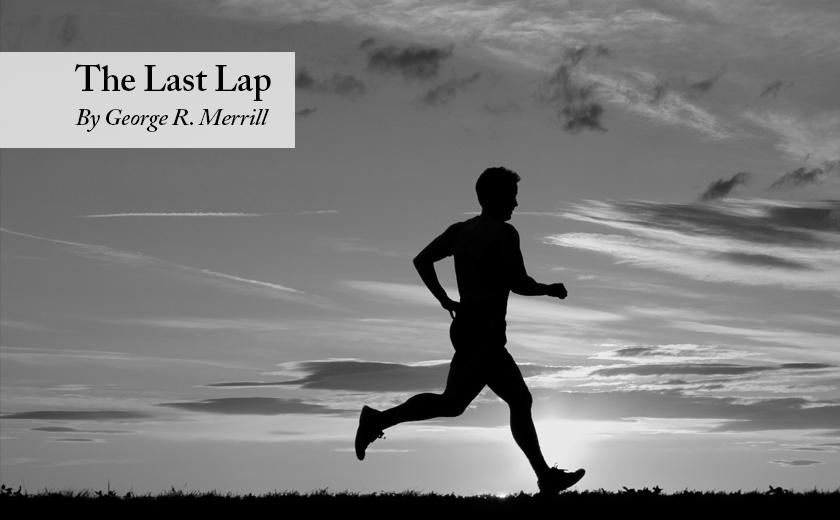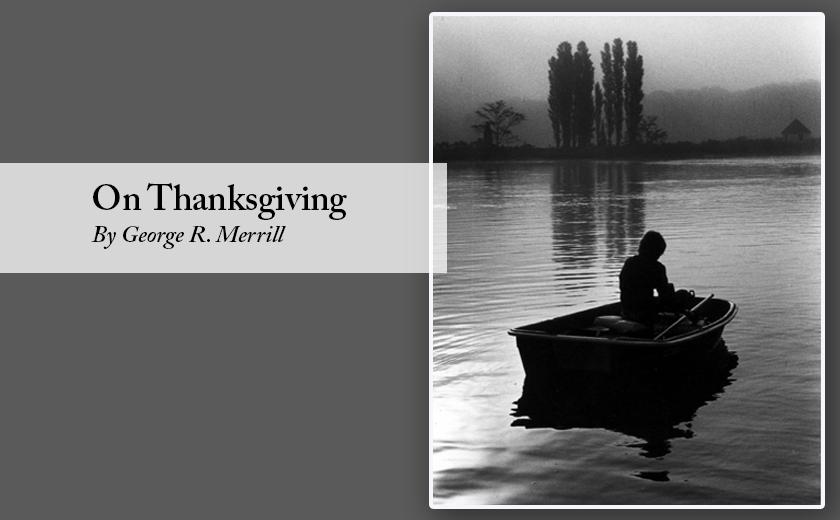Editor’s Note: George Merrill passed away in the late hours of Easton Sunday yesterday.
We made a significant decision on Monday. I was admitted to the hospice program. This decision was not made without mixed feelings.
I could enjoy all their services at home––and could drop the program any time I wished. There is one caveat: I would have to surrender all present medical interventions designed to cure or sustain my life. The trade-off is I’d be offered a variety of services and individual support comforts for the symptoms plaguing a declining body. Our decision came perhaps more abruptly than I may have wished.
Several months after my diagnosis last April, it became clear that the chemotherapy would not work to stop the disease process. I entered a regiment of supportive medical interventions with various antibiotics and other meds including weekly infusions of blood and platelets. Since December, this regimen kept me functional and feeling reasonably good.
Last week my energy level dropped lower than my socks. I slept a lot. I didn’t write for four days, unprecedented for me. I was not able to make it to blood tests at the hematologist’s office because I simply had no energy for stairs, getting into car and traveling to Easton. The handwriting was on the wall.
It was a good decision, but not without a feeling kicked up when we made the commitment. I thought as though for nine months I had been running a marathon – running for my life. I knew there was a finish line up yonder somewhere but how far and how long would it take to cross it remained vague. A silly thought really, since the finish line has never been established for anyone, and in this kind of marathon I basically run until I drop.
This decision to elect hospice was with the tacit understanding this was the final lap, no turning back. You go to die but with all kinds of services that can turn the agonies of physical and psycho spiritual dying into a merciful process. People may decide to get off the program with no questions asked. I think generally, though, the understanding by signing on is a commitment to the whole nine yards. I would now run without any of the life sustaining measures and finish the race just as I am. A variety of professional services are available to us 24/7.
I had two feelings the moment we made the decision. I felt as if I were a child again. I had been riding my bike with training wheels. Now they were removed, and I was asked to pedal without any medical safety net that I enjoyed over the last nine months. This was a “look, no hands, Mom,” and maybe to stretch the metaphor shamelessly, Mom could not do anything to dictate my course anymore. If I got hurt along the way, hospice, like mom, was nearby to help and comfort when the inevitable falls occur.
I do feel lost as if in a strange neighborhood and my senses are going to high alert, anxious to find some familiar bearing.
A friend once said to me that he was not afraid of dying just he didn’t want to sign up for it, as if his signature was going to make anything happen. Acknowledging we’re on the last lap awakens a feeling of inexorability.
I believe I have shared my thoughts about mortality as honestly as I was able at the time. Looking back, I was not always able.
It was made clear to me when I got my diagnosis I was not going to be cured. I was pretty sure I had embraced that reality as best I could.
If you are anything like I am, my experience with doctors is twofold: I bring my complaint to the physician to be cured and I expect 90% of the time he/she assists in making that happen. One positive visit reinforces the next so I grow confident that doctors can restore broken bodies. When doctors can’t, a new mindset gets mobilized. If a doctor can’t, who can?
Years ago, I had a car mechanic who looked just like Fonzie (of TV repute). He issued pencils to all his customers with the inscription: ‘If I can’t fix it, junk it.’ A scary thought when it comes to my own body. How long can I remain kindly disposed to this body if nobody can fix it? It’s not uncommon to see along our country roads, a small family plot where kin our interred in the same yard and old junks just sitting there. Out of mind, maybe, but not out of sight.
My wife had an uncle whom I idolized. He was a tall, stately looking man with a craggy face, suntanned from years on the water. He had been naval officer during the Normandy invasion. He radiated a masculine charm. It was hard not to listen when he spoke at the table. His voice was mellifluous. We were having dinner with him one evening when he was in his 80’s. He rose from the table stumbled slightly, and his handsome face turned dark with self-contempt. He said, “What an appalling spectacle.” I never forgot the incident.
I assume that our uncle was not ready to accept the limitations that age was imposing upon him. He resented, even loathed, how he’d become as he clung to his image from the past.
I’m not sure who said freedom is living within limits, but I like the thought. I am now living in cramped psychic quarters, limited physical access, a world reduced dramatically while running the last lap, to an uncertain finish.
Our decision to join the hospice program occurred at the beginning of Holy Week. This is Christianity’s time of somber reflection on suffering and death, and what this means for the relationship between our humanity and God’s divinity. In Christian liturgy, Christ’s resurrection is the center of the celebration. In one way of looking at it, Holy Week is the “last lap,” and Jesus Resurrection is the finish line. I did not think of this consciously at the time, but on reflection I think it’s one more instance how the great dramas in religious spirituality become templates for the way we live our lives daily.
Columnist George Merrill is an Episcopal priest and pastoral psychotherapist. A writer and photographer, he’s authored two books on spirituality including The Bay of the Mother of God: A Yankee Discovers the Chesapeake Bay. He is a native New Yorker, previously directing counseling services in Hartford, Connecticut, and in Baltimore. George’s essays, some award winning, have appeared in regional magazines and are broadcast twice monthly on Delmarva Public Radio.



